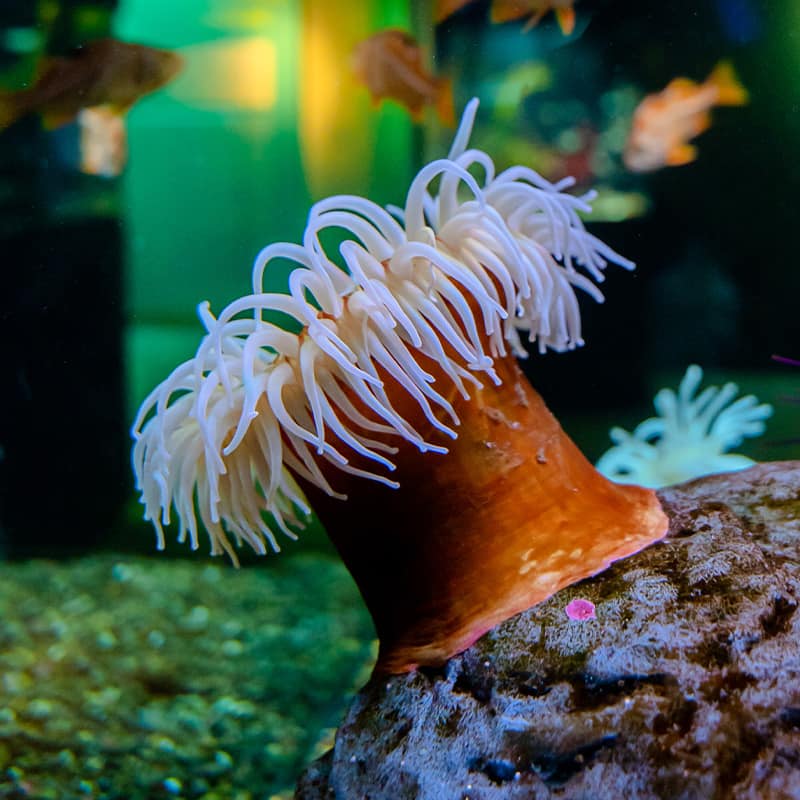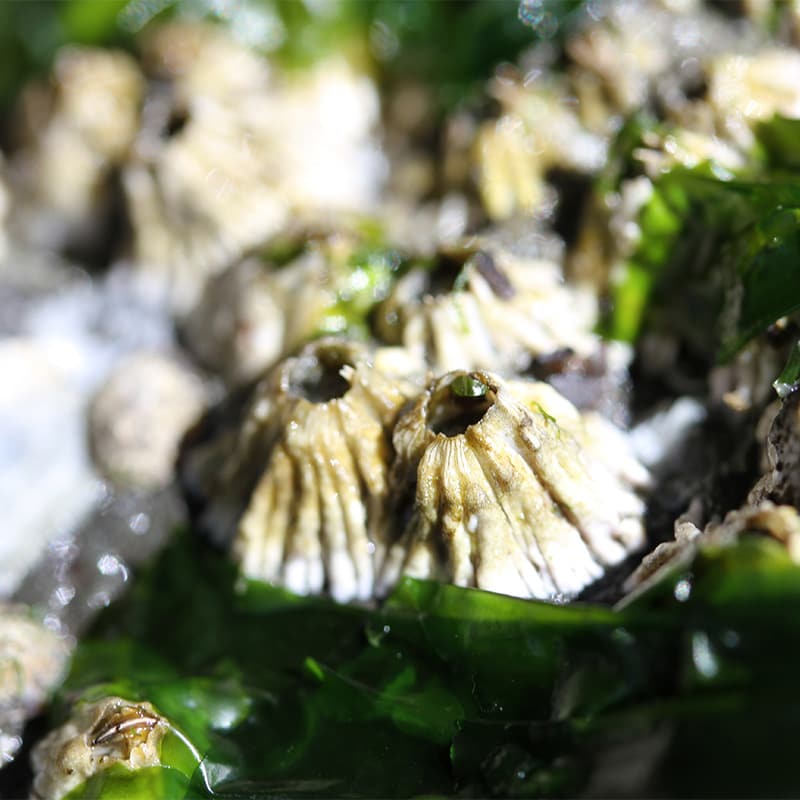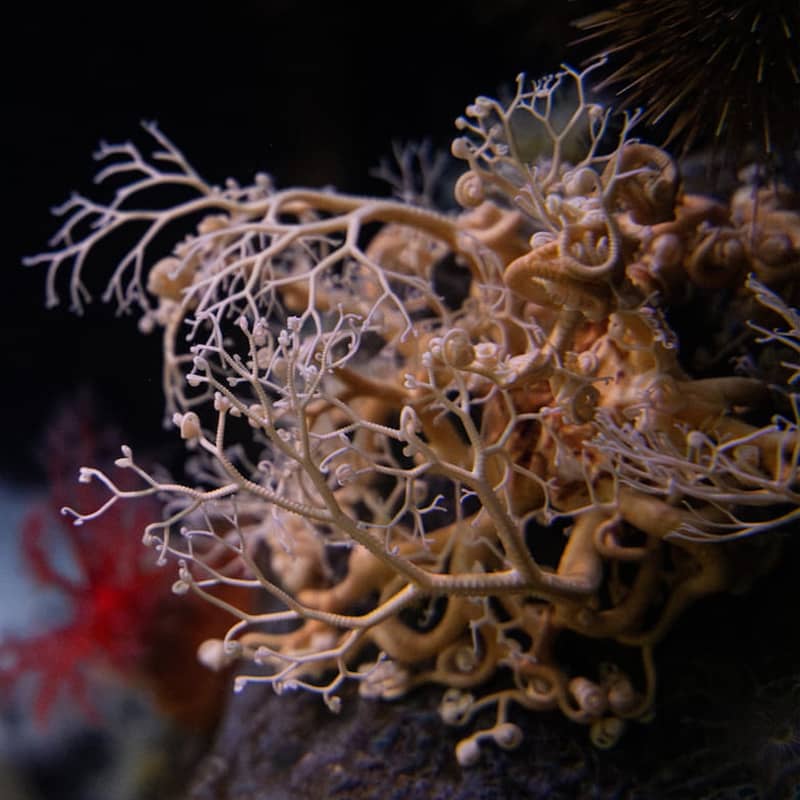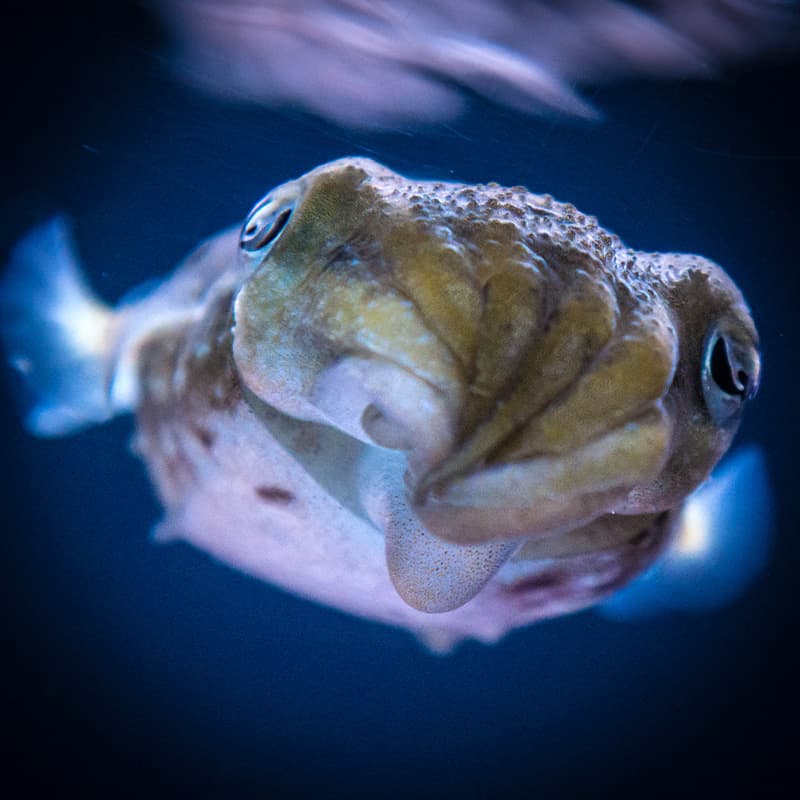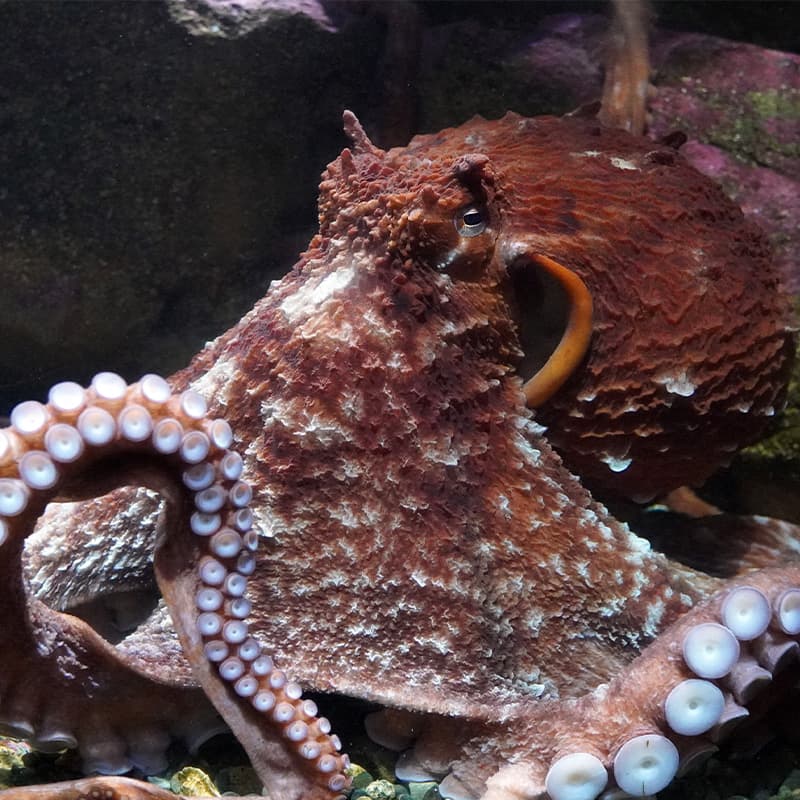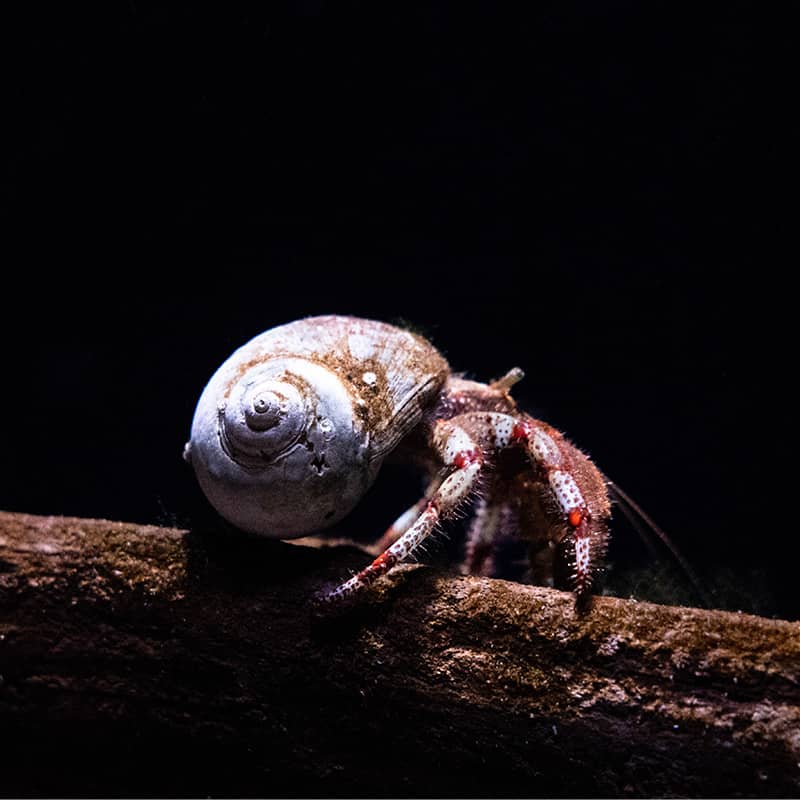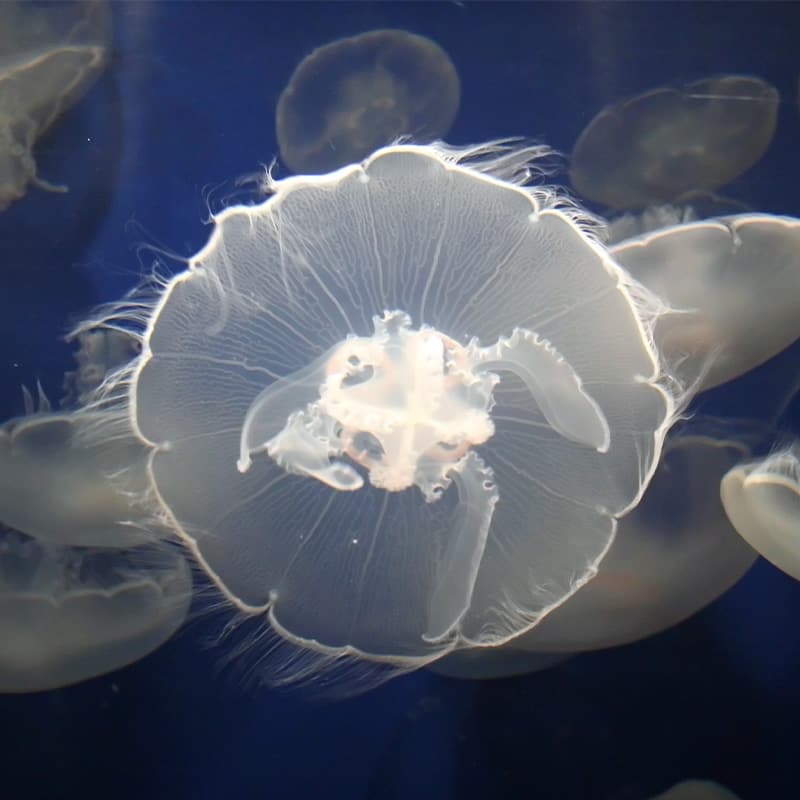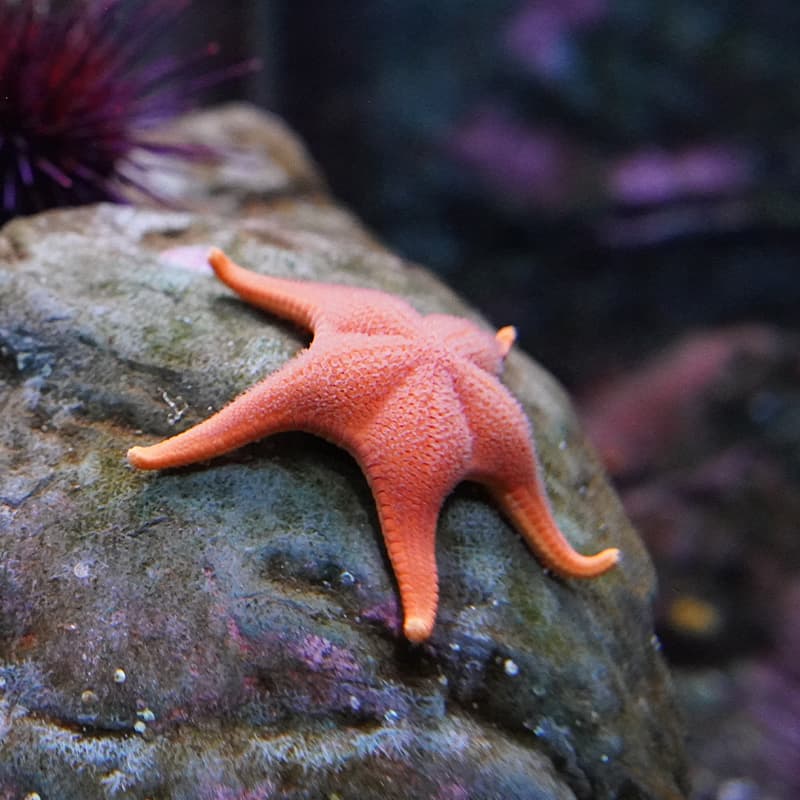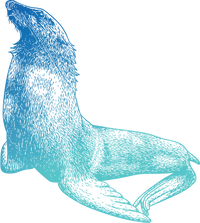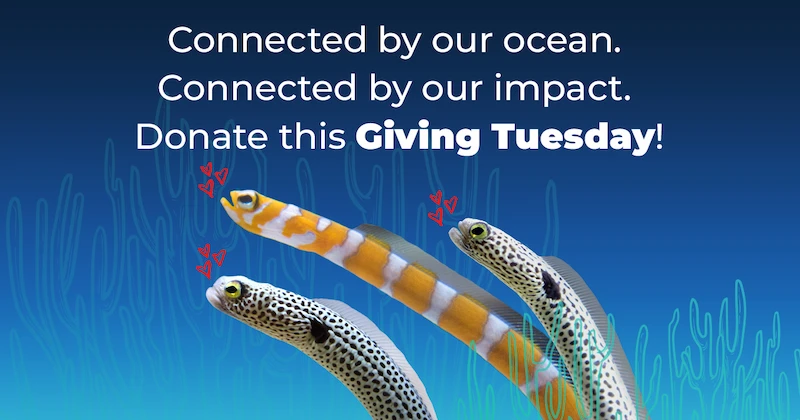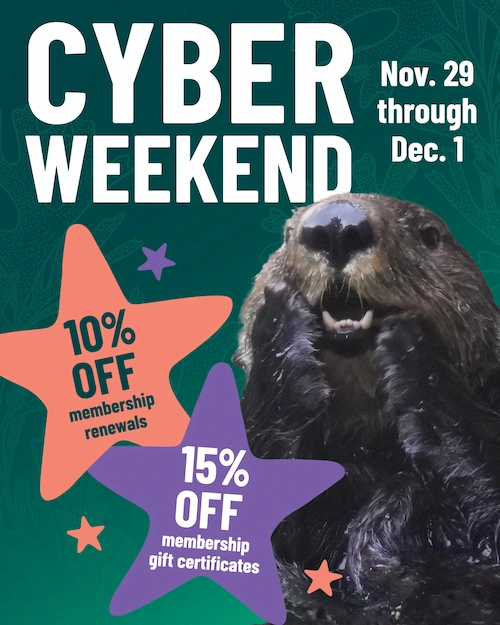- Invertebrates
Coral
Colorful, beautiful, (mostly) colonial coral
An individual coral organism is called a polyp. Most corals are colonial, which means they live in groups called colonies. So what looks like a single coral may actually be composed of hundreds of individual polyps! There are over 6,000 species of this incredible animal. And yes, corals are animals! Unlike plants, corals can’t make their own food.
At the Aquarium
- Habitats throughout the Aquarium
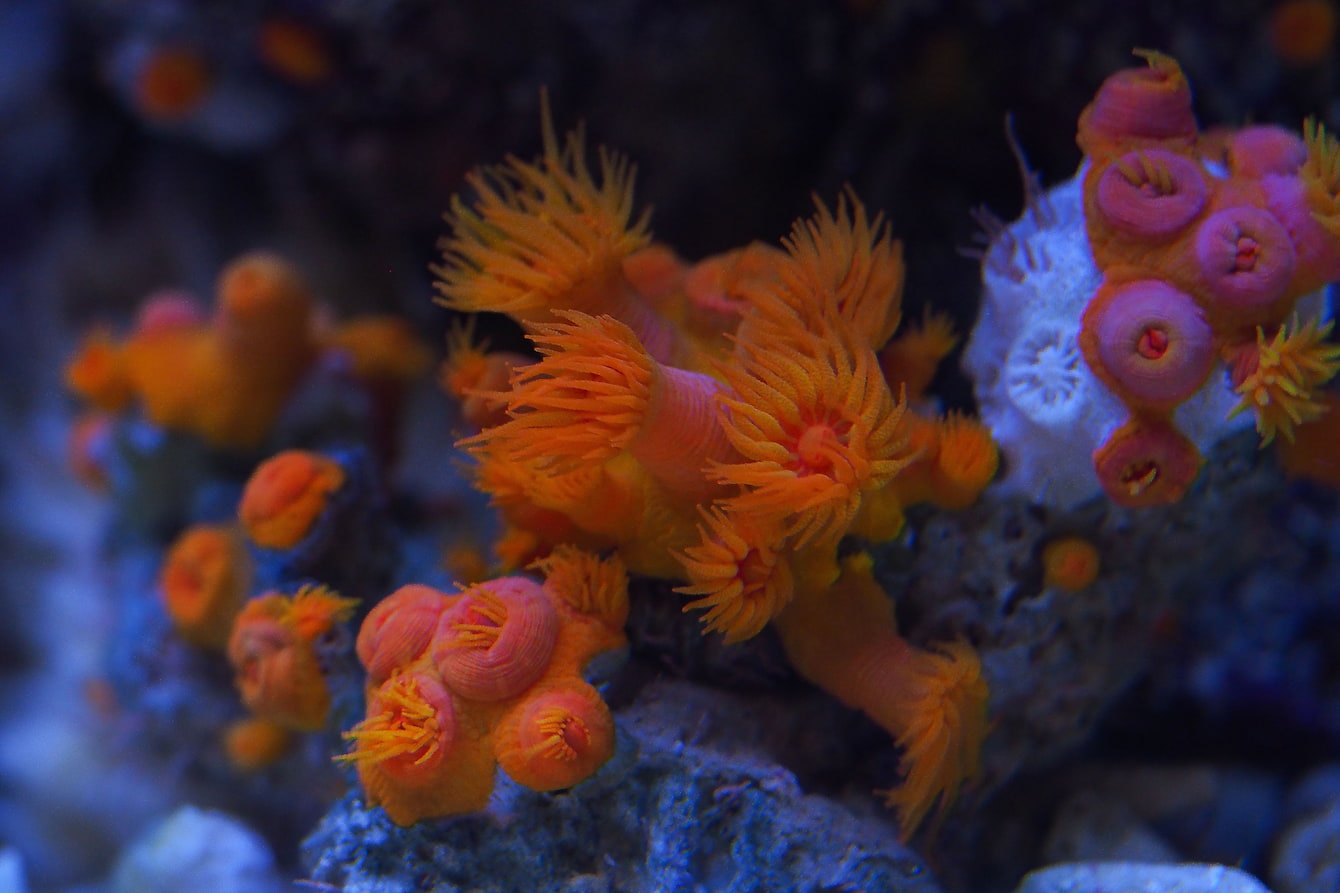
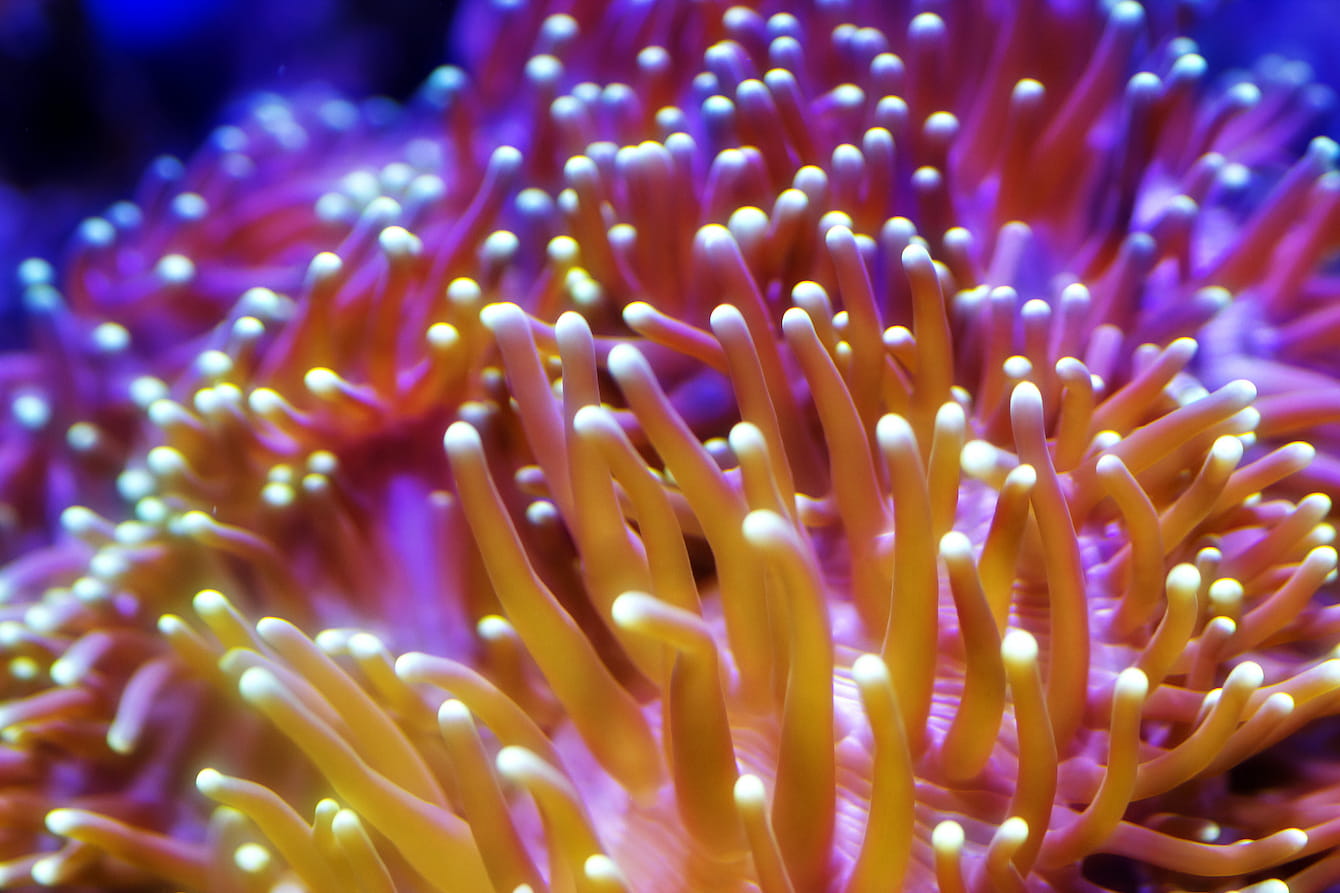
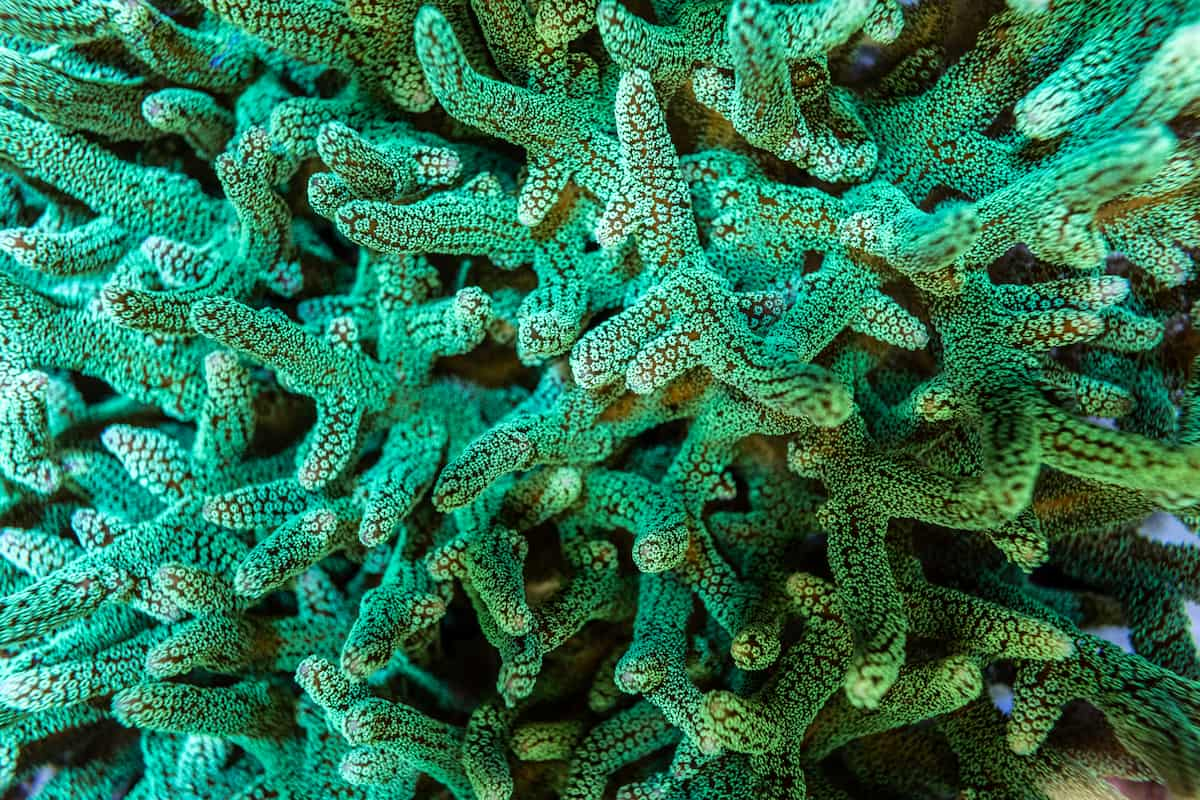
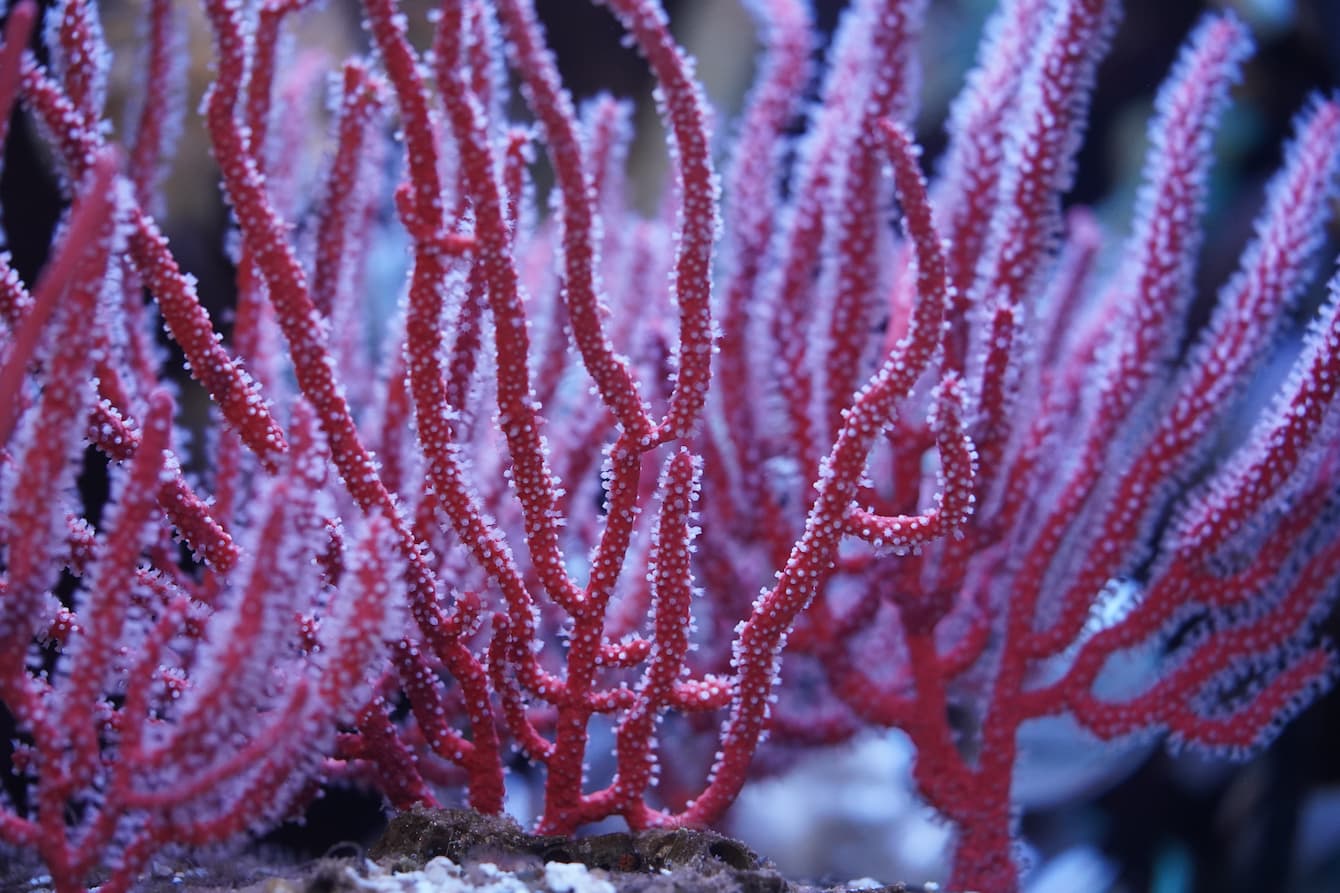
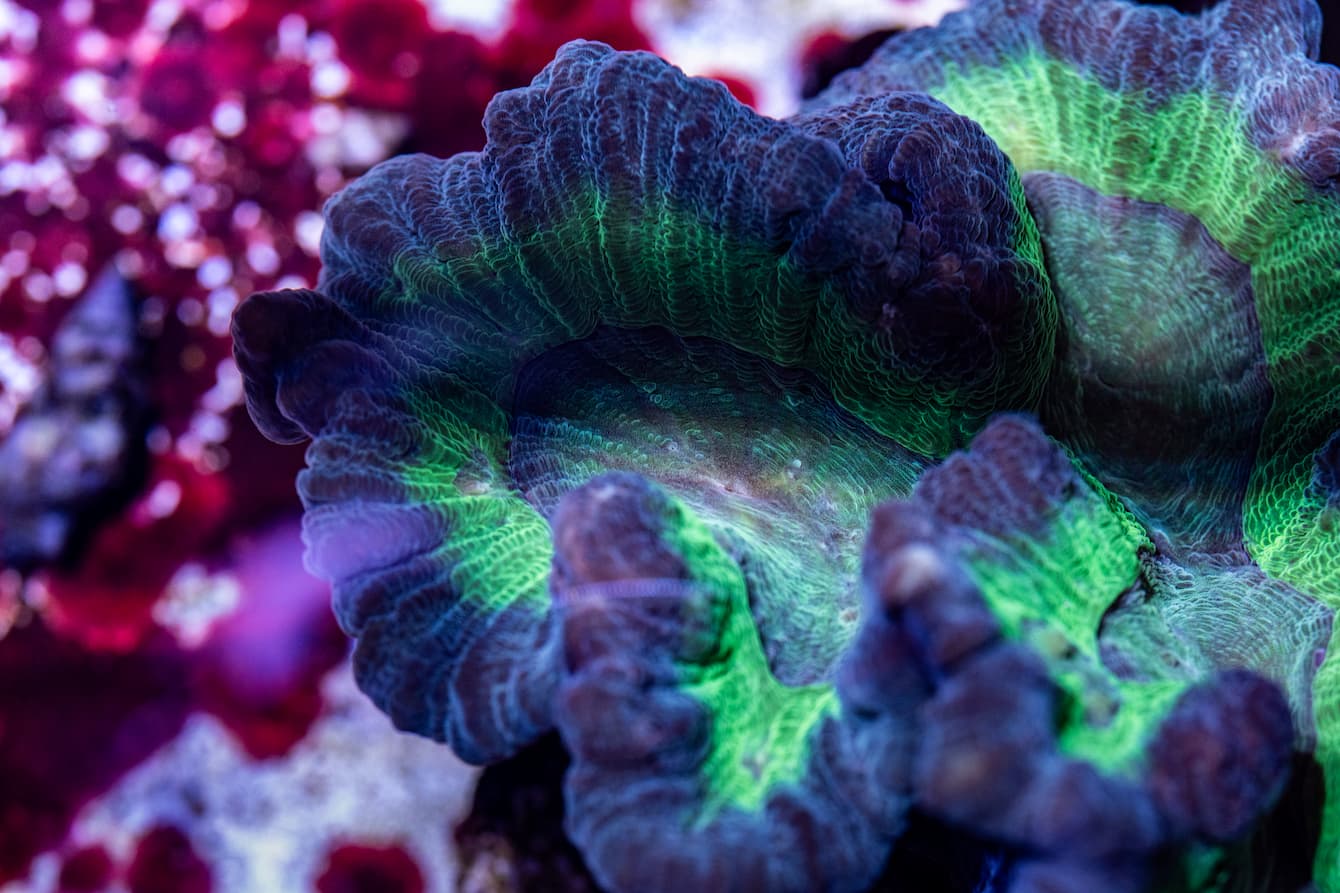
Warm-and cold-water dwellers
Most people associate corals with tropical waters—like the vibrant corals found in the Indo-Pacific. But you may be surprised to find that a stunning variety of corals live in the chilly waters of the Pacific Northwest. Cold-water corals eat plankton and other small organisms and can be found up to 6,000 feet below the surface. Warm-water corals live close to the surface and rely on symbiotic algae for sustenance. You can see both warm- and cold-water corals at the Seattle Aquarium.
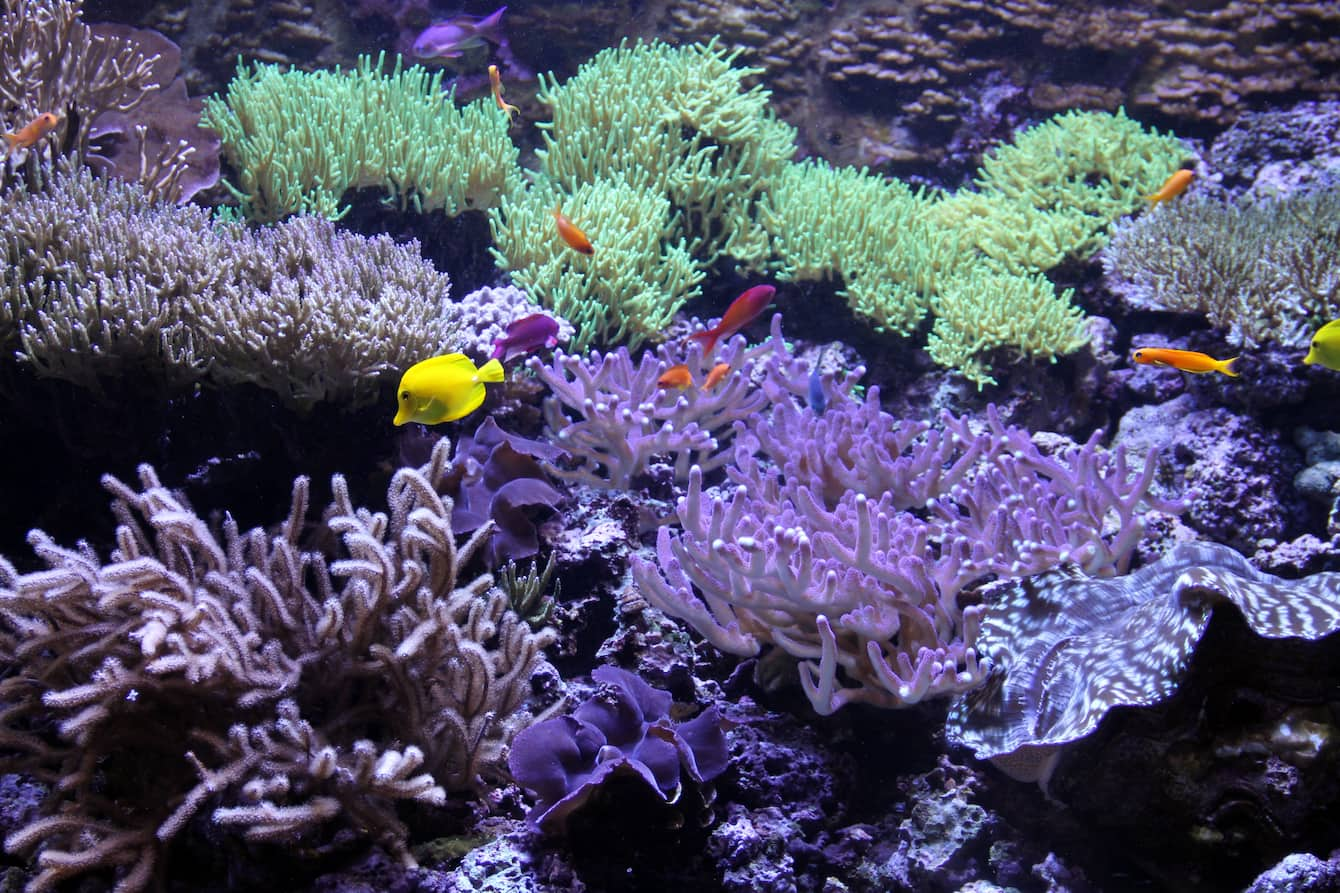
A habitat made of skeletons
Coral reefs are, primarily, made by stony corals. Each individual stony coral polyp secretes a skeleton of calcium carbonate. Over time (a long, long time!), these skeletons can build up and form massive coral reefs, with colonies consisting of millions of coral polyps living atop the remains of former colonies. Most established coral reefs are between 5,000 and 10,000 years old. It’s estimated that some existing reefs began growing over 50 million years ago!
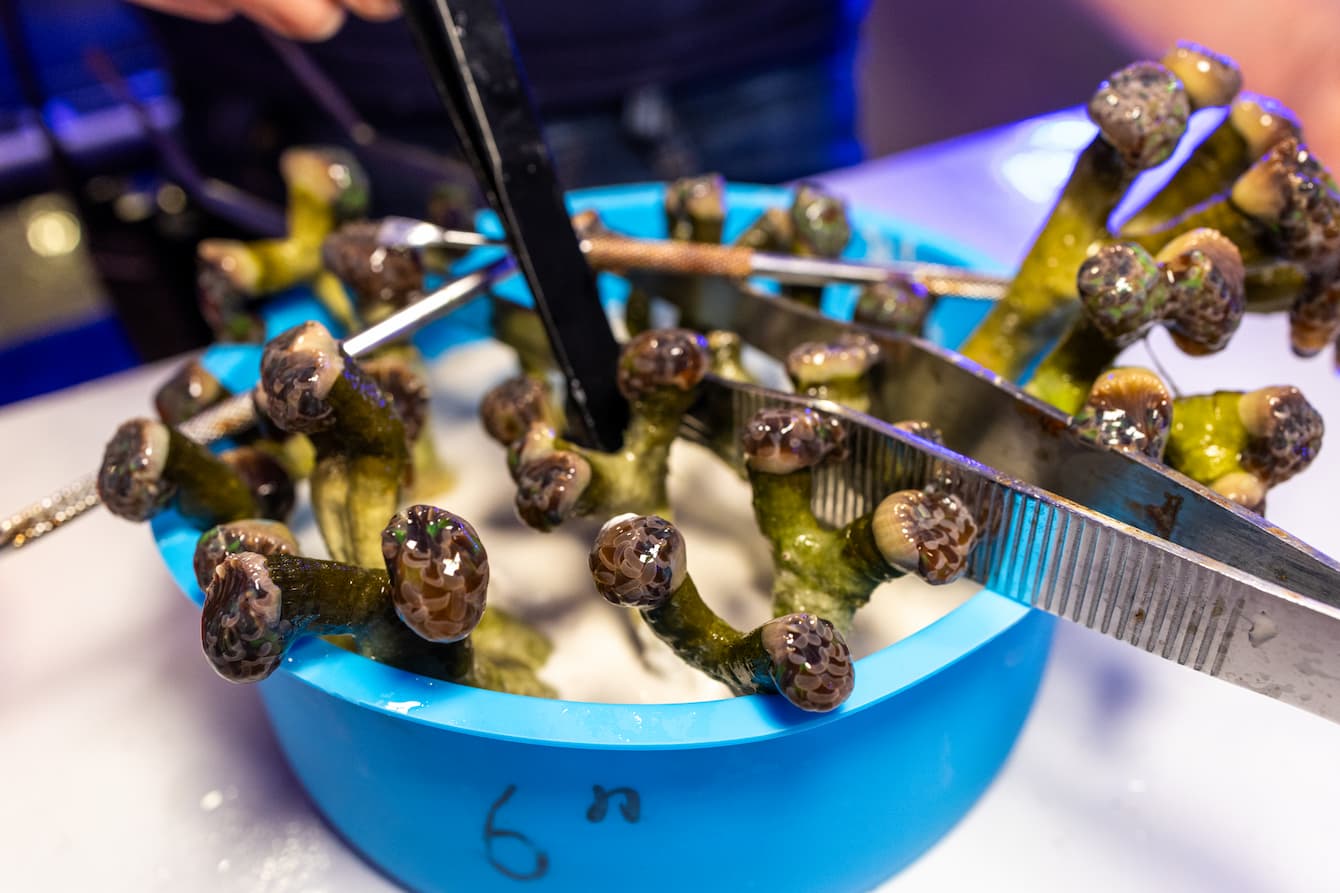
What's coral fragmenting?
Like sea stars and lizards, some coral species can survive losing part of their body. Corals can reproduce asexually—meaning without a mate—and under the right conditions, these fragments can create a whole new colony. The Seattle Aquarium helps corals reproduce like this. Our animal care staff carefully trim pieces of coral in a process known as fragmenting or propagation. These fragments are secured to a new base, where the coral can reproduce and develop. Our in-house propagation program helps us introduce new corals to the Aquarium without impacting wild populations.
Critically important—and in critical condition
Coral reefs take up less than 1% of the seafloor but support approximately 25% of all known marine species. Today, the world’s coral reefs are in danger. Some of the biggest threats to coral reefs are rising ocean temperatures linked to climate change, unsustainable fishing practices and pollution. Rising ocean temperatures can lead to coral bleaching, which occurs when stressed corals release the algae that usually helps provide them with food and nutrients. Coral bleaching weakens corals and can be fatal.
Taking steps to protect coral reefs
Establishing and maintaining marine protected areas—where human activity is restricted—may be the best way to protect coral reefs from further destruction. Some areas have already been established, but more are needed. On an individual level, there are many actions you can take that will help coral reefs, including saving water; reducing pollution by walking, biking or riding the bus; choosing environmentally friendly home and garden products; disposing of waste properly; and reducing your carbon footprint.
Quick facts
Coral reefs support approximately 25% of all known marine species!
Corals are animals, not plants, since they don’t make their own food.
The Seattle Aquarium raises corals and helps them reproduce.
